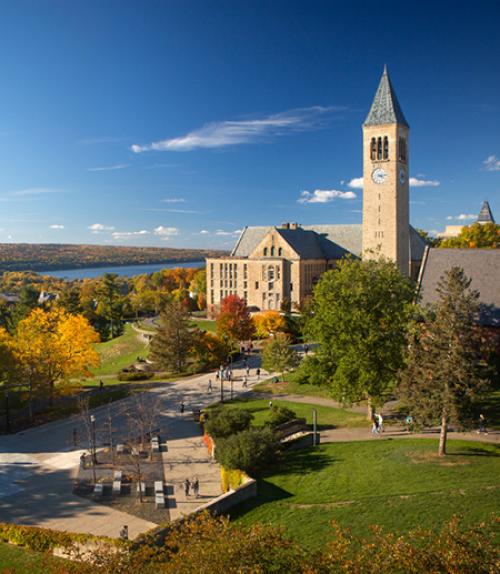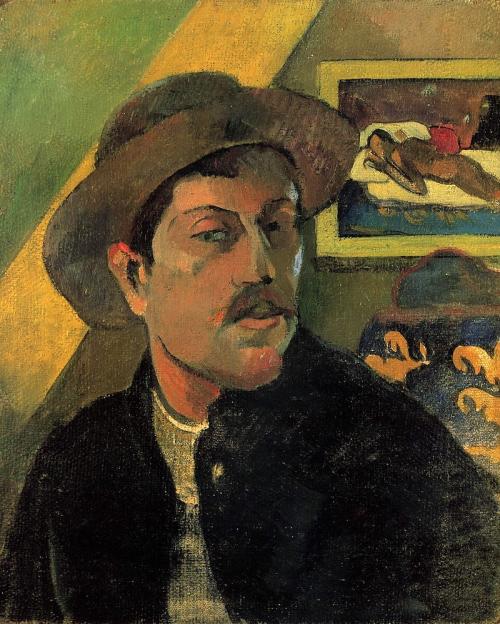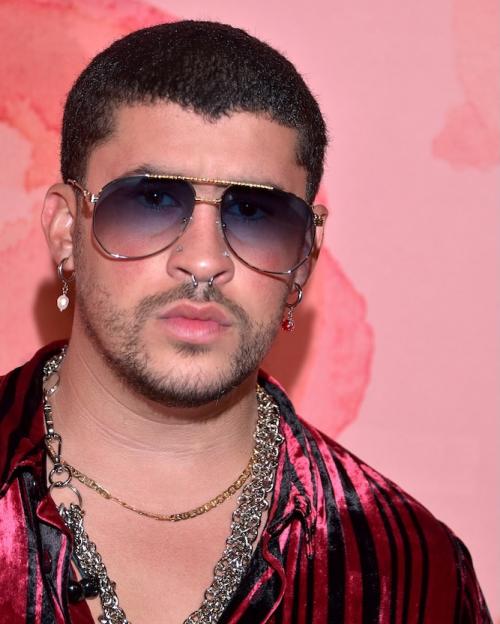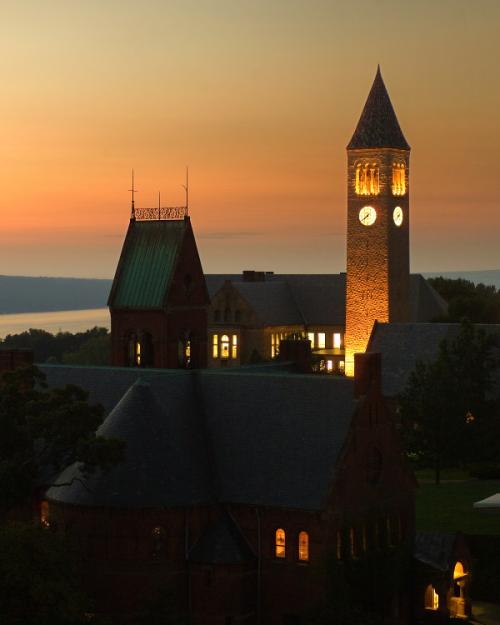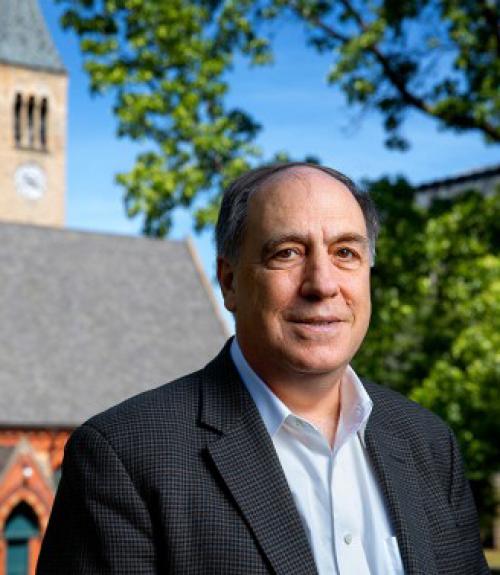Building on Cornell’s decades of fundamental and comparative research in the immunological sciences, Provost Michael Kotlikoff has announced the creation of a new Cornell Center for Immunology.
The virtual center will combine multiple research efforts across several departments and colleges on the Ithaca campus and strengthen ties to the university’s ongoing immunological research at Weill Cornell Medicine in New York City.
Gary Koretzky ’78, a rheumatologist, immunologist and Cornell’s vice provost for academic integration, has been named the inaugural director of the center. Koretzky is a professor in the Weill Department of Medicine at Weill Cornell Medicine and is also appointed in the Department of Microbiology and Immunology at the College of Veterinary Medicine in Ithaca.
Noting Cornell’s strength in fundamental cell biology and genetics, and the relevance of these disciplines to the immunological sciences, Kotlikoff said the timing for creating the center is ideal.
“Immunology has assumed a primary role in the treatment of disease, particularly cancer, where the ability to manipulate the immune system has become a key tool in the effort to control processes of cancer formation and metastasis,” Kotlikoff said. “Cornell has great strengths in the biology of immune cells, genetic/genomic determinants of immune mechanisms, vaccine development and comparative immunology. These strengths exist in multiple departments and colleges, but have not been brought together on campus and have not leveraged the strengths of our colleagues at Weill Cornell Medicine.”
Koretzky said recent scientific advances in, and increased attention on, immunology are due in large part to “the great efficacy of novel immunotherapeutic approaches” to fighting disease.
“Everybody has heard about immunotherapies for cancer, but it’s not just cancer,” he said. “There are all these new drugs that have been developed that require a fundamental understanding of immunology that have impacted many, many different disease processes.”
In creating the immunology center, Koretzky said, Cornell is not trying to replicate the kind of center a medical school would create. Instead, it is taking advantage of the Ithaca campus’s unique strengths, such as fundamental science research, single-cell and comparative species analyses, biomedical engineering and advanced imaging. Additionally, it hopes to provide an intellectual home for faculty, spawning new collaborations and approaches across disciplines.
“Our goal is to develop a center that complements the work conducted by our colleagues at Weill Cornell Medicine,” Koretzky said. “This makes it synergistic, and, even though this is the cliché of ‘the sum being greater than the individual parts,’ it’s really true. We have people who are tackling things from all different perspectives and directions, and they can provide insights to each other that are really useful. That’s arguably the best way to make scientific advances.”
The center will draw together faculty and researchers from the Colleges of Veterinary Medicine, Engineering, Agriculture and Life Sciences, Arts and Sciences, and Human Ecology. That extensive breadth is a Cornell hallmark and echoes the provost’s Radical Collaboration Drives Discovery initiative; in fact, the idea for the center was first proposed by the initiative’s Infection Biology Task Force.
Koretzky noted other recent efforts that have helped set the stage for Cornell’s Center for Immunology, including the start of a search for a new chair of the Department of Microbiology and Immunology at the College of Veterinary Medicine and Weill Cornell Medicine’s establishment last fall of the Friedman Center for Nutrition and Inflammation, which is creating new programs across Cornell’s New York City and Ithaca campuses to study the relationship between nutrition, inflammation and disease development.
Kotlikoff said, “Gary is a natural choice as the new center’s director,” noting Koretzky is recognized internationally for his research dissecting key pathways that regulate immune cell development and function and establishing new paradigms for how immune cells are activated.
Koretzky is one of eight councilors of the American Association of Immunologists and will serve as the organization’s president in 2021. He received his M.D. and Ph.D. degrees from the University of Pennsylvania in 1984.
This story also appeared in the Cornell Chronicle.
